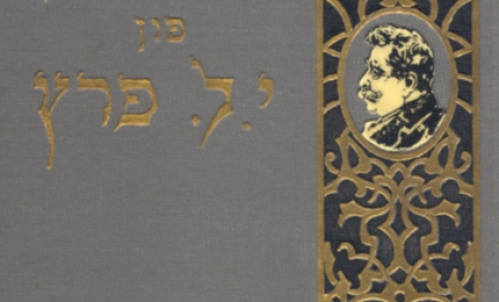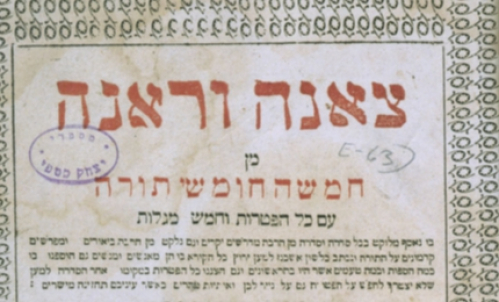Translation in Pre-Zionist Jewish Literature

|
Book Talk
Admission: $5 |
Ken Frieden shows the importance of translations, focusing on the Yiddish/Hebrew tales told by Nahman of Bratslav (1806-10/1815) and the German/Yiddish/Hebrew sea narrative Oniya so`ara (1815-18?). Frieden’s book Travels in Translation refutes the familiar history, in connection with the modern Hebrew literature, Zionism, and the return to spoken Hebrew. Although Mendele Moykher Sforim (S. Y. Abramovitsh) was dubbed “the Grandfather” by Sholem Aleichem and crowned “the Creator of the nusah” by H. N. Bialik, Abramovitsh also had grandfathers. Two generations before Ben Yehuda’s journey to Palestine and the so-called “revival” (tehiya), Nathan Sternharz, Mendel Lefin, and other writers contributed to the development of modern Hebrew and Eastern Literary Yiddish. Despite maskilic efforts to emulate the style of the biblical Prophets and the Zionists’ claim to return to ancient Israelite origins, modern Jewish literature came into existence in translation—explicitly or implicitly—from other languages. Some of the most creative pathways in Jewish writing include translations from German into Yiddish and Hebrew, from Hebrew into Yiddish, and from Yiddish into Hebrew and English.
About the Speaker

Ken Frieden is the B. G. Rudolph Professor of Judaic Studies at Syracuse University. His most recent publication is Travels in Translation: Sea Tales at the Source of Jewish Fiction (2016). Prior books include Classic Yiddish Fiction (1995) and anthologies of Yiddish literature in translation, such as Tales of Mendele the Book Peddler (1996) and Classic Yiddish Stories (2004). He has been a visiting professor at the universities in Tel Aviv, Haifa, Heidelberg, and the University of California at Davis, and a research fellow at the Hebrew University in Jerusalem, the Free University of Berlin, and Harvard. At Syracuse University Press, Frieden edits (with Harold Bloom) the series on Judaic Traditions in Literature, Music, and Art. He translates from Yiddish and Hebrew and has edited collections by the Israeli authors Etgar Keret (Four Stories) and David Ehrlich (Who Will Die Last: Stories of Life in Israel).

